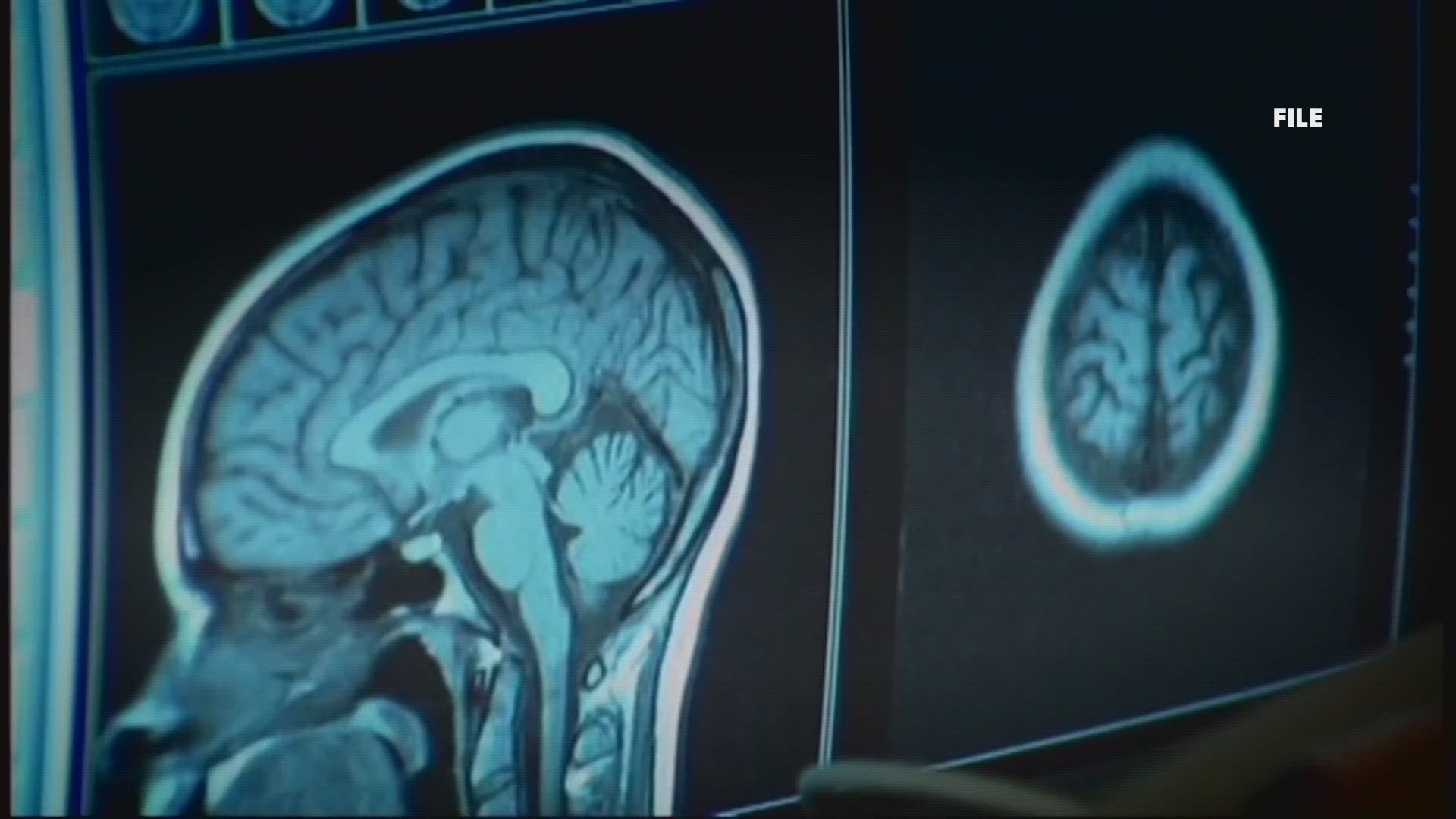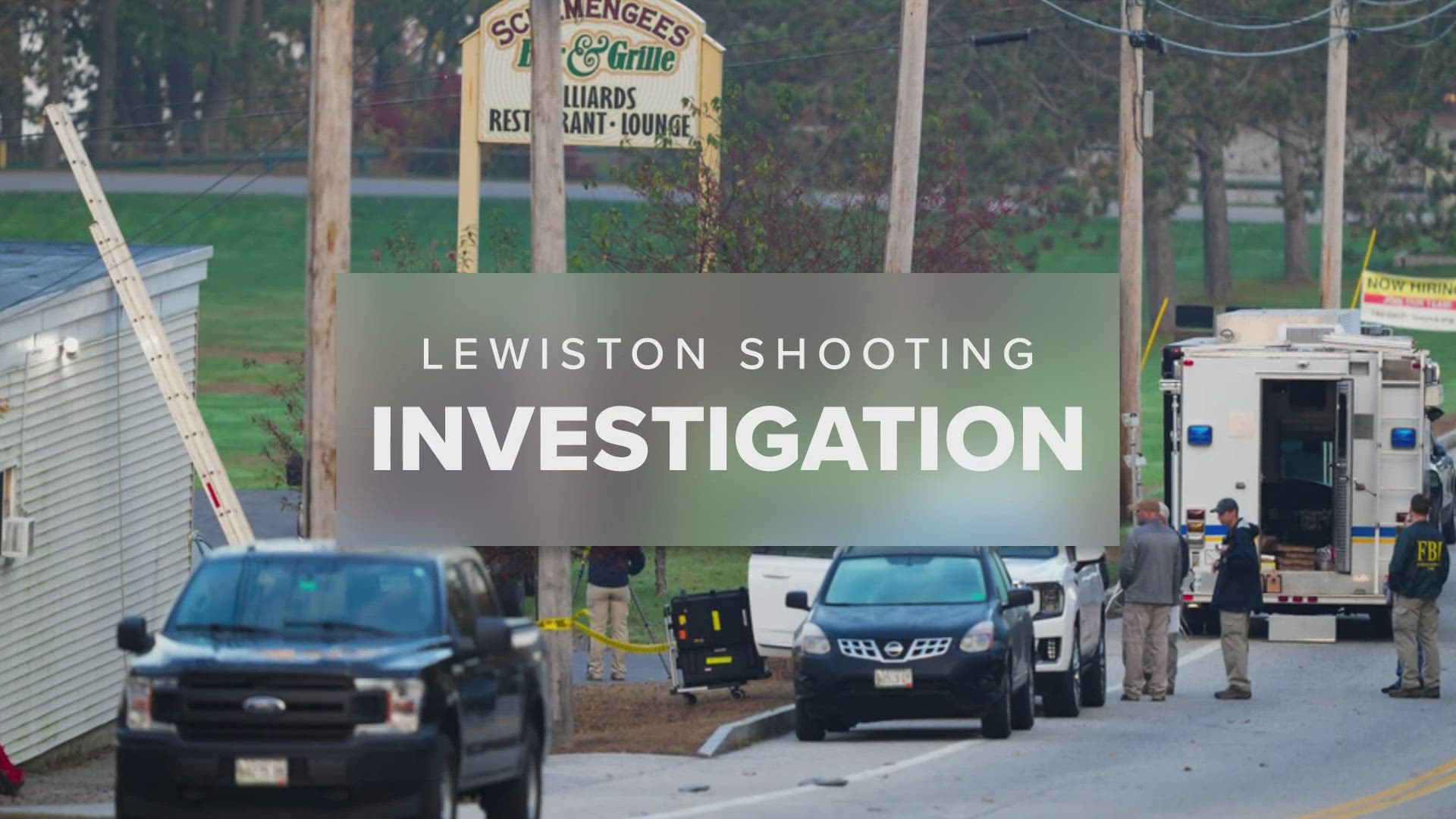BOSTON — A post-mortem study of the brain of the Lewiston mass shooter has revealed "significant evidence of traumatic brain injuries" at the time of the shootings in October.
Robert Card, 40, died from a self-inflicted gunshot wound on Oct. 27, two days after he killed 18 people and injured more in shootings at Schemengees Bar & Grille and Just-In-Time Recreation, also referred to as Sparetime Recreation.
On Wednesday, findings from Card's brain tissue analysis conducted by the Boston University CTE Center and led by center Director Ann McKee, MD were revealed in a news release issued by the Concussion Legacy Foundation on behalf of the family of Robert Card "in an effort to help prevent future tragedies."
Maine's Chief Medical Examiner’s office requested the post-mortem study, which revealed evidence suggesting Card suffered traumatic brain injury.
"In the white matter, the nerve fibers that allow for communication between different areas of the brain, there was significant degeneration, axonal and myelin loss, inflammation, and small blood vessel injury. There was no evidence of chronic traumatic encephalopathy (CTE)," Dr. McKee said in the release. "These findings align with our previous studies on the effects of blast injury in humans and experimental models. While I cannot say with certainty that these pathological findings underlie Mr. Card’s behavioral changes in the last 10 months of life, based on our previous work, brain injury likely played a role in his symptoms."
The New York Times earlier reported the testing could reveal whether Card had a brain injury, such as chronic traumatic encephalopathy, or C.T.E., which the Times alleged he may have suffered while in the Army. The postmortem study determined this specifically was not the case.
"Card was a U.S. Army Reservist and a longtime instructor at an Army hand grenade training range, where it is believed he was exposed to thousands of low-level blasts," the release stated.
Card's family is allowing ongoing studies on his brain to support McKee's research and expressed thanks for existing analysis efforts along with a nod to families impacted by the Lewiston tragedy.
"We want to begin by saying how deeply sorry and heartbroken we are for all the victims, survivors, and their loved ones, and to everyone in Maine and beyond who was affected and traumatized by this tragedy. We are hurting for you and with you, and it is hard to put into words how badly we wish we could undo what happened. While we cannot go back, we are releasing the findings of Robert’s brain study with the goal of supporting ongoing efforts to learn from this tragedy to ensure it never happens again. We thank the Maine Chief Medical Examiner’s office for requesting the brain analysis. We know it does not fully explain Robert’s actions, nor is it an excuse for the horrific suffering he caused, but we thank Dr. McKee for helping us understand his brain damage and how it may have impacted his mental health and behavior. By releasing these findings, we hope to raise awareness of traumatic brain injury among military service members, and we encourage more research and support for military service members with traumatic brain injuries. Our hearts remain with the victims, survivors, and their families."


